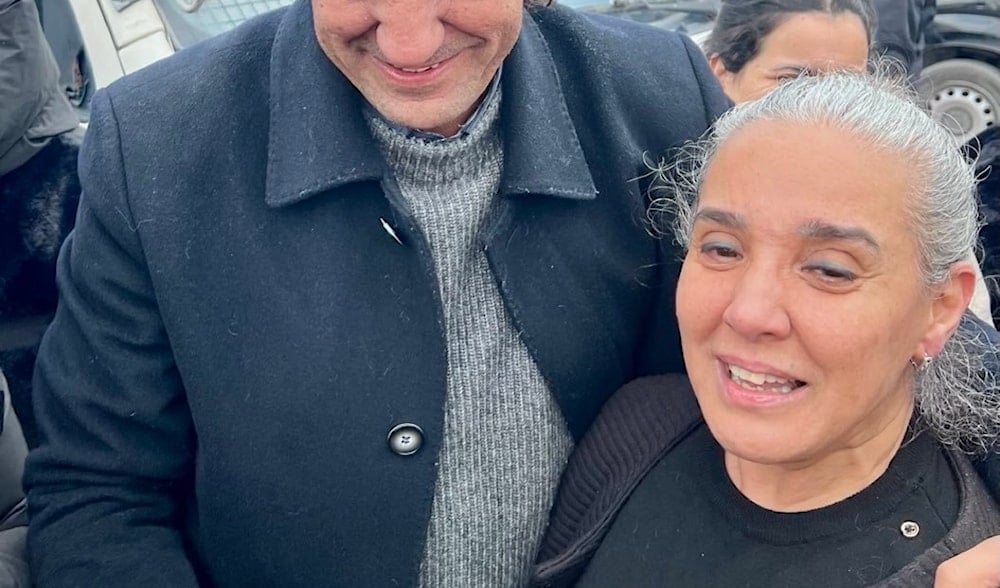Tunisia releases lawyer Sonia Dahmani after 18 months in prison
Prominent Tunisian lawyer Sonia Dahmani has been released after serving 18 months in prison over remarks critical of President Kais Saied and Tunisia’s treatment of African migrants.
-

Tunisian lawyer and commentator Sonia Dahmani, upon her release from imprisonment in Tunis, Tunisia, November 27, 2025 (Social media)
Tunisia has released prominent lawyer and media commentator Sonia Dahmani, a well-known critic of President Kais Saied, after she served a year and a half in prison.
Dahmani was convicted over remarks made during a television appearance in which she challenged the government’s narrative on undocumented African refugees and migrants. Responding to a question about whether migrants intended to “conquer” Tunisia, she said, “What kind of extraordinary country are we talking about? The one that half of its youth want to leave?” A Tunisian court ruled that her comments insulted the state and spread false information.
Upon her release from Manouba prison near the capital, dozens of family members and activists gathered, chanting, “The police state’s era of repression is over.” Speaking to reporters, Dahmani said she hoped her release marked “the end of the nightmare” for herself and for other prisoners.
Her lawyer, Sami Ben Ghazi, said the decision followed an order by the justice minister under a system allowing inmates to seek release after completing half their sentences.
The National Syndicate of Tunisian Journalists welcomed the move and urged authorities to free other detained journalists. Rights organisations have repeatedly warned that Dahmani’s imprisonment underscored a deteriorating climate for free expression in Tunisia.
Tunisia's face-off with autocracy
In the lead‑up to the October 2024 presidential election, the Tunisian authorities undertook a sweeping campaign to neutralize political challengers. More than a hundred members or supporters of the opposition Ennahda party were arrested under counter‑terrorism laws, including approved presidential candidate Ayachi Zammel, who was later sentenced to long prison terms. Judicial and electoral institutions were restructured to put them under executive control; for example, the electoral commission was re‑shaped in 2022 to be more directly linked to the presidency.
Once his 2021 power grab, in which he suspended parliament, assumed decree powers, and dissolved the judiciary‑oversight body, was firmly in place, Saied moved to systematically suppress dissent. In 2022, he dissolved the Supreme Judicial Council and dismissed dozens of judges, raising concerns over judicial independence.
By 2025, mass trials were underway: opposition figures, lawyers, businesspeople, and media professionals were being convicted of “conspiracy against state security” or terrorism‑related charges, with some sentences stretching as high as 66 years. A prominent trial that began in March 2025 targeted 40 individuals, resulting in the conviction of 37 defendants in April, with prison terms ranging from 4 to 74 years.
At the same time, the civil society space in Tunisia was under heavy assault. Authorities froze the assets of non‑governmental organizations, suspended operations of at least 14 such groups in 2025 alone, and used foreign‑funding legislation as a pretext to shut down independent watchdogs. Critics argue that the pressure on civil society aims to eliminate independent oversight and limit international scrutiny.
Saied and his supporters maintain that their campaign is focused on “purging the country of traitors and corruption.” However, human rights organizations, opposition parties, and international observers increasingly view the legal tools and judiciary as being weaponized against dissent, entrenching one-man rule and weakening democratic safeguards.

 3 Min Read
3 Min Read








